Archive for July, 2009

Freedom of the press
While the comments by McKeeva Bush in response to a Net News editorial may have strayed a little close to a warning not just to Desmond Seales but the wider media, what is worthy of further exploration is the idea of a press association — not only to maintain ethics, as he suggested, but to protect journalists from the threats of big business as well as politicians.
Anyone who knows the editor of Net News will recognise that, while Bush was sailing a little too close to the threatening wind, he also had a point.However, that’s a matter for Seales and his clients and readers to worry about. Furthermore, Bush’s war of words with him will probably continue on and off, as it already has done for years, without resolution. Moreover, Bush is not alone in his decision to use press briefing time to castigate the media – Kurt Tibbetts also took time to do it on several occasions as well, even if he didn’t do it with quite so many colourful adjectives.
The important point here is how the media can improve standards but also protect itself from manipulation. Press freedom is a very precious thing but it is not until it is gone that we recognise how important that it is. There is no doubt that the formation of a media association here is long overdue and it is desperately needed to protect the independence as well as the standards of reporting.
While Bush may have accused Seales of blackmail, it is not uncommon for blackmail to be used to manipulate the press. As all of the media in Cayman is dependent on advertising sales, local businesses and of course successive governments (as they spend money on ads too) have also been guilty of the same tactics which Seales has been accused of.
During my own time at Net News I witnessed first hand threats from certain quarters of the business community to remove advertising if an unfavourable story about their brand or business was not stopped from appearing on the pages of the newspaper.Of course, advertisers have a right to advertise where they choose, but it is a dilemma for all publishers to balance the need to make at least enough money to stay viable or to publish and be damned.
Historically, the tabloid press in both the UK and US, by way of example, has depended on its formally vast readerships to keep advertisers on board, despite the fact that there may be less than favourable content about those very advertisers or their industries on the pages. However, with the advent of the internet and free classifieds, the print newspaper business is shrinking rapidly and the revenue streams which once ensured a free press in the free world are drying up everywhere — and Cayman is no different.
If people cannot rely on the relative objectivity of the press when it comes to news headlines then the community will be far worse for it. It is my own belief that because Cayman has not always had a very reliable press the marl road has flourished to the extent that it has – it’s no surprise that the absence of information will leave plenty of room for speculation.
The independence of the media, however, can only be maintained with financial independence, which means that advertisers must understand that, as they are themselves in turn consumers of news and information, the editorial aspects of a news media house are independent of its advertising. The medium, be it a newspaper or a website such as CNS, provides the advertiser with numbers. Advertisers should be looking for concentrations of people who will buy their product and they should not expect to control the editorial content with their advertising dollar.
The best place to advertise is with a news organisation that has lots of people reading it regularly and people will only read a news website or newspaper if they can depend on the accuracy and timeliness of the news. Once an advertiser tries to manipulate the editorial content of a media house, then he begins to undermine the very thing he is trying to do, which is to reach the widest most relevant readership he can.
Manipulation of the press by either politicians or business is equally as destructive to the fundamentals of a free media — a crucial element in a democracy — as is the idea of a newspaper proprietor threatening to run bad stories about people who won’t buy advertising. The two things, advertising and editorial, have to remain separate and apart and it may well be that a newspaper association could bring independent pressure to stop both sides abusing their potential power.
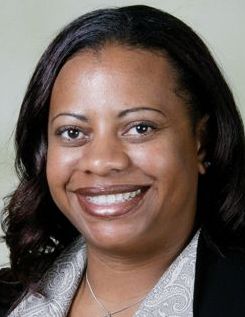
Local trainer upgrades technology for IT tests
 (CNS): Micro Matrix has signed an agreement with Pearson VUE which the training centre says will enable it to provide a better service to students to test and certify them in specialist areas. “We’re very excited about our new partnership with Pearson VUE,” said Sandra Catron (left). “The Pearson VUE Testing System is the most powerful available. We’re pleased to partner with a company whose breakthrough technology and passion for service will allow us to provide even greater service for our customers.”
(CNS): Micro Matrix has signed an agreement with Pearson VUE which the training centre says will enable it to provide a better service to students to test and certify them in specialist areas. “We’re very excited about our new partnership with Pearson VUE,” said Sandra Catron (left). “The Pearson VUE Testing System is the most powerful available. We’re pleased to partner with a company whose breakthrough technology and passion for service will allow us to provide even greater service for our customers.”
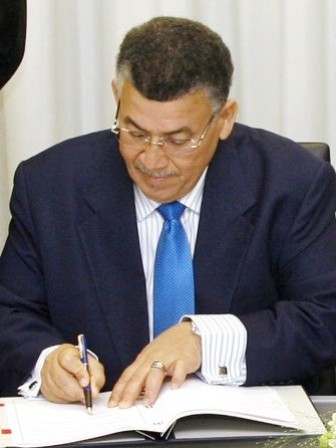
New Zealand to make Cayman’s 12th tax deal
 (CNS): Although New Zealand is likely to be the twelfth and probably Cayman’s most important Tax Information Exchange Agreement, as it should see the jurisdiction removed from the infamous OECD ‘grey’ list, the Leader of Government Business, McKeeva Bush will not be heading ‘down under’ to sign on the dotted line as he said its too far to travel. He said that government is trying to arrange to meet the New Zealand leader in Washington instead as soon as possible for the official signing ceremony. Although there have been recent concerns that 12 agreements may still not be enough to make the white list Bush said he was confident that it was.
(CNS): Although New Zealand is likely to be the twelfth and probably Cayman’s most important Tax Information Exchange Agreement, as it should see the jurisdiction removed from the infamous OECD ‘grey’ list, the Leader of Government Business, McKeeva Bush will not be heading ‘down under’ to sign on the dotted line as he said its too far to travel. He said that government is trying to arrange to meet the New Zealand leader in Washington instead as soon as possible for the official signing ceremony. Although there have been recent concerns that 12 agreements may still not be enough to make the white list Bush said he was confident that it was.
“The Cayman Islands now has 11 such bilateral agreements in place. It is my intention to secure the 12th agreement in short order so that the Cayman Islands can be removed from the OECD Grey List. I realise there are some concerns being aired regarding the possibility of the OECD moving the goal post so to speak or that the stated number of 12 agreements may be changed. However based on the discussions I have had with OECD officials, this is highly unlikely,” the LoGB said at a media briefing on Friday. He said there was a need to keep focused and he was confident that the OECD was recognising Cayman’s commitment to the agreements.
Noting that New Zealand was most likely to be the 12th TIEA Cayman was alas at the advanced stages of negotiation with several other countries, including Italy, Mexico, Germany, France, Australia, Portugal and Canada,
“Having agreements at the “technical level” means that we have concluded negotiations and senior representatives from both countries have signed off on the text,” Bush said. “Each country will go through the necessary steps to obtain approval at the ministerial/cabinet level after which the official signing will be arranged. The length of time ittakes to sign officially will vary from country to country depending on their unique legislative and approval processes.”
He explained that based on our discussion with the various countries in most cases, the Cayman Islands will be able to sign official agreements with these countries by September at the latest when he intended to lead a delegation to the OECD Global Forum on Transparency and Exchange of Information in Mexico.
“Our attendance at this meeting will enable the Cayman Islands to have as seat and a voice at the table during the important discussions on the status of the OECD transparency initiative generally and what type of framework may be put in place to monitor the process of implementation across countries,” the LoGB added. “It is my strong view that it is best to participate in these initiatives as it gives us not only full insight into what is being planned and discussed, but also an opportunity to provide our own direct input into a process which will inevitably affect us in the future.”
Asked how if there was any progress on the OECD’s judgement of the unilateral mechanism, legislation for which Cayman designed and passed last year which the previous administration had hoped would sway the OECD into placing Cayman on the white list, Bush said he did not hold out much hope for it.
He said that during his recent travels in Europe there was considerable cynicism and it was safer for Cayman to focus on bi-lateral treaties. “When we went to France it was almost as though there was laughter in corridors about it not much hope,” he said. “And because of the G20 meeting in September we can’t wait on an unknown process we have to get the bi-lateral treaties signed.”
Bush added that government remained committed to protecting both the commercial success of the industry and Cayman’s good reputation as a well regulated and cooperative jurisdiction.
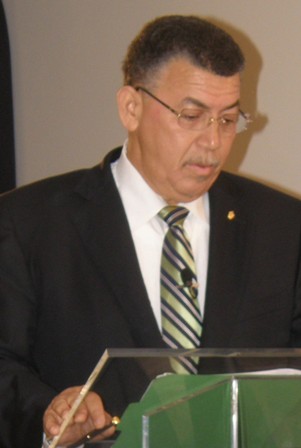
Mac cautious on fund data
 (CNS): As the Cayman Islands Monetary Authority begins to look at publishing more information online about hedge funds domiciled in the jurisdiction as part of its commitment to better regulation and transparency, the leader of government business has stated that, as there is no pressure from international standard setting bodies, the merits of the proposal should be considered before any decision is made. CIMA, however, said in a statement that it has a responsibility to constantly review the jurisdiction’s regulatory framework.
(CNS): As the Cayman Islands Monetary Authority begins to look at publishing more information online about hedge funds domiciled in the jurisdiction as part of its commitment to better regulation and transparency, the leader of government business has stated that, as there is no pressure from international standard setting bodies, the merits of the proposal should be considered before any decision is made. CIMA, however, said in a statement that it has a responsibility to constantly review the jurisdiction’s regulatory framework.
McKeeva Bush told the press on Friday, 17 July, that he had been asked about CIMA’s proposals to publish data on the internet and noted his reservations.
“It is important for us to research carefully the pros and cons of this proposal to ensure that we meet any regulatory concerns while maintaining a competitive hedge funds industry at this crucial economic time,” Bush said, adding that he hoped the regulatory bodies and the industry would work together to strike the right balance. He said he was concerned that in the current economic climate it may not be in Cayman’s best interest to introduce this change given that it is not something that is being implemented in competing jurisdictions.
“Furthermore, as far as I am aware, there are no concerns or initiatives emanating from international standard setting bodies, which specifically focus on this issue. We should therefore carefully consider the merits of the proposed change,” he noted.
In a statement this week CIMA made it known that the idea of expanding the amount of information available on investment funds is just one issue the authority was considering under the umbrella of enhancing transparency. “The initiative is still in its early stages. We havehad some pre-consultation discussions with members of the sector and wider industry consultation will take place at the appropriate time.”
CIMA said it expected that, for any new measure, there will be mixed responses from stakeholders but there would be further opportunity for industry to have input as part of the formal consultation process before its recommendations were finalised and put to the board and the government.
It also noted its statutory obligations as a regulator and independent organization to maintain standards in the industry and to enhance market confidence, consumer protection, and the jurisdiction’s reputation and competitiveness while meeting relevant, appropriate international standards.
Bush acknowledged that his comments were only his personal views because it was up to the Monetary Authority board as an independent regulatory body, toconsider the merits of any proposal. “However I felt that as the Minister with responsibility for the general development of the financial services industry, it was important for me to make this brief statement on this topical issue,” he said at Friday’s press briefing.
CIMA said that last summer’s financial crisis prompted it to undertake a review of regulated sectors and regulatory standards and after assessing recommendations made by various regulatory, standard setting, and economic bodies’ aspects identified as playing a key role in the proper functioning of the financial system liquidity standards for financial entities, risk management, failure resolution systems, and transparency.

Pirates get stay of execution till 2010
 (CNS): Although the Pirates Week festival is set to change and a competition is to be held to find a new name, the pirates moniker was offered a stay of execution this week, at least for this year’s festival. Leader of Government Business McKeeva Bush has denied that the change is based on pressure from the church and said that it hadmore to do with the way Cayman was perceived on the international financial services stage. He confirmed that he wanted to see the festival change in content as well as name and is looking for something that puts the islands’ rich maritime heritage at the forefront.
(CNS): Although the Pirates Week festival is set to change and a competition is to be held to find a new name, the pirates moniker was offered a stay of execution this week, at least for this year’s festival. Leader of Government Business McKeeva Bush has denied that the change is based on pressure from the church and said that it hadmore to do with the way Cayman was perceived on the international financial services stage. He confirmed that he wanted to see the festival change in content as well as name and is looking for something that puts the islands’ rich maritime heritage at the forefront.
“It’s still a very real threat today,” said Bush, reflecting on a number of international news headline stories about Somali pirates. “We are all too aware that even with one of the most robust financial regulatory frameworks — which incorporates both international standards of supervision and cooperation with overseas regulatory authorities — our reputation as an offshore jurisdiction, among some influencers in North America and Europe, remains unjustifiably tainted. For us, the image of piracy — or theft, or hijacking, as it is also called — is not one that we can afford to embrace at this time.”
Bush said it was prudent to do everything possible to remove any perceptions of, or associations with, piracy from the Cayman Islands.
The decision to change the name has generated considerable controversy and polarised the community, with the church wanting to see the pirate connection removed completely versus those in the tourism sector who see the festival as offering a real annual boost to the country’s tourism sector at a very slow time in the industry calendar.
“I understand that Pirates Week means a lot to many residents. And I greatly respect and appreciate the intentions of our National Hero, the late Hon James (Jim) Manoah Bodden, who implemented the festival as a way of bringing tourists to our shores,” the LoGB said.
He added that he did not think it brought that many tourists any more and it was time to create a festival that puts Cayman culture at the forefront. "I believe this is our opportunity to shape this festival into something that represents us culturally, and that reflects our rich maritime heritage,” Bush stated.
He acknowledged that there were people who wanted to have been more involved in the process of change so he said he had asked the Tourism Attraction Board, in collaboration with other relevant government agencies, to spearhead a renaming competition.
“The activities this year will remain the same. Our goal is to implement the new name and renewed festival by November 2010.”
He said that while he appreciated not everyone was going to accept the situation he hoped people would understand his decisions
“Yes, my role as minister of tourism demands that I champion events that will bring visitors and foreign exchange to our shores. But my role as leader also demands that I strive to protect that which ensures our very survival,” Bush added.
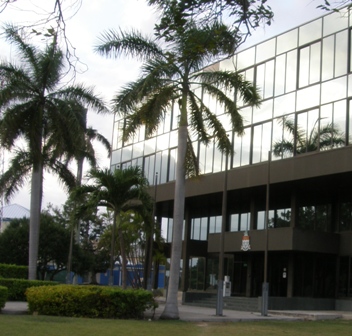
Government cuts coming
 (CNS): Although the 2009/10 budget has yet to be finalised, Leader of Government Business McKeeva Bush has said that there will be cuts in government expenditure. He said that the new UDP government would soon be in a position to give an update on the exact circumstances regarding government revenue, but that cuts would have to be made as the deficit was huge. He also said that he would consider selling government assets to raise revenue and would be looking for ways to refinance government loans to address the financial difficulties.
(CNS): Although the 2009/10 budget has yet to be finalised, Leader of Government Business McKeeva Bush has said that there will be cuts in government expenditure. He said that the new UDP government would soon be in a position to give an update on the exact circumstances regarding government revenue, but that cuts would have to be made as the deficit was huge. He also said that he would consider selling government assets to raise revenue and would be looking for ways to refinance government loans to address the financial difficulties.
Speaking at the government’s second live press briefing since taking office, Bush told the country that there would have to be significant cuts in government expenditure. Although he was not specific about where the cuts would be, he said that as government revenue streams were not performing there would be no option but to reduce spending.
He said that government had tremendous assets in Cayman and was taking advice on using them to raise revenue. Bush pointed to the Turtle Farm, noting that if the right partner could be found with “the right experienceand right sized pocket book”, then it is possible that government would be prepared to sell. Bush explained that various discussions had taken place but nothing had born fruit and he had nothing concrete that he could report to the country yet. He said, however, that government would not be selling anything to throw people out of work but to retain and create jobs.
Bush also noted that he would be paying close attention to borrowing and refinancing. “Our government will continue to look at other areas and current debt of government,” he said. adding that by the end of the year he hoped that the administration would have secured refinancing solutions. Bush noted that government must lead the way in sorting out its own situation to give the private sector the necessary confidence to continue investing in Cayman.
“As I have said before, we cannot fix the existing financial situation as quickly as we would like, but we will not stop until we have addressed the current very serious financial situation that the government is in,” he said. “It is not a good situation and I am alarmed at the constant attack on the financial secretary by the current PPM opposition from party members both inside and outside the House (referring to the recent statements from Charles Clifford). The financial secretary does not spend money; it is the elected government that spends money.”
He said that throughout their time in office the PPM had always looked for scapegoats. “At first it was Mr Mckeeva. As time went by it was the governor who was blamed, and then the refrain became: ‘I wasn’t aware, we were not brought up to speed, I was mislead.’ Now it’s the turn of the financial secretary,” Bush said.
He added that the PPM were just not taking responsibility for their actions and were wrong to blame the FS, who only brings the budget that the government has to OK, he said. “It was not the financial secretary who made spending decisions; it was Kurt Tibbetts, Alden McLaughlin, Anthony Eden, Charles Clifford and Arden Mclean who were the ones that spent the money, not the financial secretary. They are ones that left the country in the mess it is in today and will be for another year or two until we can clear the deficit.”
Speaking about the Cayman Islands Development Bank relief programme, he said the CIDB had received an overwhelming response in terms of the number of persons who have contacted the bank for possible assistance. “The CIDB has reported that they have received more than 108 requests for interviews to look into possible assistance,” Bush said. “Of those, the CIDB has already carried out 48 interviews. Roughly 50% of those who have been interviewed have qualified for the stimulus as outlined in the program, which covers several areas such as mortgage arrears, working capital for businesses, debt consolidation, hurricane shutters and insurance.”
He added that roughly half of those who were interviewed have already received loan approval and 21 loans totalling $800,000 has been approved. The LoGB also explained that, following discussions with HSBC, the CIDB had secured refinancing for some CI$27 million of this outstanding debt at a significantly lower interest rate. “Based on current market rates we will be paying an interest rate of 2.79% on this outstanding debt instead of the previous 6%,” Bush added.
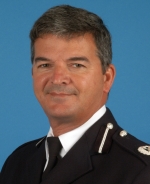
RCIPS meetings to be held on Sister Islands
 (CNS): The first Royal Cayman Islands Police Service community meeting with new Police Commisssioner David Baines will be held on Cayman Brac on Monday 20 July at the high school, starting at 7:00pm, followed by a meeting on Tuesday, 21 July, at the Little Cayman Beach Resort conference room. The last police meetings on the Sister Islands were over a year ago in April 2008, since when the district also has a new Area Commander, Chief Inspector Malcolm Kay. Superintendent Adrian Seales will also be on the platform and local uniformed officers will be on hand to answer questions from the community.
(CNS): The first Royal Cayman Islands Police Service community meeting with new Police Commisssioner David Baines will be held on Cayman Brac on Monday 20 July at the high school, starting at 7:00pm, followed by a meeting on Tuesday, 21 July, at the Little Cayman Beach Resort conference room. The last police meetings on the Sister Islands were over a year ago in April 2008, since when the district also has a new Area Commander, Chief Inspector Malcolm Kay. Superintendent Adrian Seales will also be on the platform and local uniformed officers will be on hand to answer questions from the community.
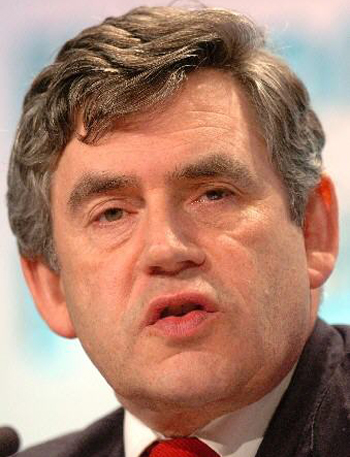
Sanctions set for March on tax havens
 (Dow Jones): U.K. Prime Minister Gordon Brown and French President Nicolas Sarkozy have called for sanctions to be imposed on tax havens from March 2010. "And the world should be in no doubt that the writing is on the wall for tax havens wherever they may be," Brown said. “We are calling today for a March 2010 deadline for the introduction of sanctions against tax havens. Sarkozy called on tax havens to go even further, and to commit to greater transparency on fiscal matters. "Tax havens have shifted from the black list to the gray list, now fiscal cooperation conventions must be signed…they need to exit the gray list," he said.
(Dow Jones): U.K. Prime Minister Gordon Brown and French President Nicolas Sarkozy have called for sanctions to be imposed on tax havens from March 2010. "And the world should be in no doubt that the writing is on the wall for tax havens wherever they may be," Brown said. “We are calling today for a March 2010 deadline for the introduction of sanctions against tax havens. Sarkozy called on tax havens to go even further, and to commit to greater transparency on fiscal matters. "Tax havens have shifted from the black list to the gray list, now fiscal cooperation conventions must be signed…they need to exit the gray list," he said.

Celebrities hit by Ponzi sting
 (Daily Mail): A UK pop star, a TV actress and top sportsmen are among hundreds of victims of an £80million Bernard Madoff-style scam, it emerged last night. Detectives believe at least 600 investors were duped in one of the biggest Ponzi frauds uncovered in the UK. The Ferrari-driving fraudsters are said to have wooed clients at plush sports clubs and upmarket bars, targeting celebrities in acon that was so convincing that some of the victims still refuse to accept they have been ripped off. Police said that they are tracking down cash believed to be in accounts in Dubai, the Cayman Islands and Thailand.
(Daily Mail): A UK pop star, a TV actress and top sportsmen are among hundreds of victims of an £80million Bernard Madoff-style scam, it emerged last night. Detectives believe at least 600 investors were duped in one of the biggest Ponzi frauds uncovered in the UK. The Ferrari-driving fraudsters are said to have wooed clients at plush sports clubs and upmarket bars, targeting celebrities in acon that was so convincing that some of the victims still refuse to accept they have been ripped off. Police said that they are tracking down cash believed to be in accounts in Dubai, the Cayman Islands and Thailand.
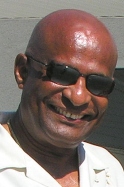
Editor accused of blackmail

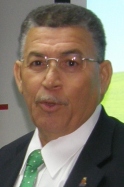 (CNS): Leader of Government Business McKeeva Bush hit out at the Editor in Chief of Cayman Net News, Desmond Seales, on Friday morning, accusing the newspaper boss of trying to blackmail him with an editorial published on 13 July. He said the editorial contained blatant lies and that for too long Seales had been getting away with threatening people who would not give him a blank cheque. He added that if Seales was more objective instead of castigating people he might make money.
(CNS): Leader of Government Business McKeeva Bush hit out at the Editor in Chief of Cayman Net News, Desmond Seales, on Friday morning, accusing the newspaper boss of trying to blackmail him with an editorial published on 13 July. He said the editorial contained blatant lies and that for too long Seales had been getting away with threatening people who would not give him a blank cheque. He added that if Seales was more objective instead of castigating people he might make money.
Speaking at a government press briefing, he said that Seales had approached him with a proposal to undertake the government’s communication and public relations work, but Bush said that the government had asked him to be more specific about his offer as it appeared he was asking for a blank cheque. As a result of the fact that government had not offered him work yet, Bush suggested Seales was using the pages of his newspaper to “castigate” or push government into a corner to force them to use his services.
Bush said the editorial was wrong and his tactic was not going to work. “He needs to be objective and give the country confidence in him then he will make money,” the leader of government business said. “He is not going to brow beat us just because we can’t give him an open check.” Bush said Seales could not threaten anyone by saying he had “plenty ink” as he would not put up with it.
“If the media can’t police themselves then remedies will have to be found. This administration will not be blackmailed by any two-bit hustler who, when you do not pay what he is demanding, messes up the store. This kind of hoodlumism won’t be tolerated,” Bush added. He said that for far too long Seales had gotten away with threatening and brow beating people with his “ink” and he was in the habit of castigating people or loving them when he choose to suit his own ends.
Bush said that he felt that he and the government in general had a good and cordial relationship with the local press and that was what he would expect. “We are fair in answering questions,” he said. “If I can be reached I will talk to the press but we have country to run and there is no fair and honest reason for the attack 13 July.”
He explained that Seales had taken him and the government to task over communication saying that when he, as LoGB, had returned from his overseas travels he had made “impulsive commitments and announcements”, which had not been properly cleared, such as the pensions holiday, and that there was poor communication between ministries. Bush said it was an out and out lie. “I make no statements without being briefed by the relevant ministry,” he said and reminded everyone what he had actually said at the last briefing.
He said there was a need to be fair and tolerant as the media was not on the moon on 20 May and that the press knew full well what problems the new government now faced on the financial front. He noted that the television and radios had to be licensed and were policed that way but that there was nothing policing print media. He said Seales was a wild card, using the type of abuse that he did and it had gone on too long with no one speaking out about it.
He did say he was in favour of the media forming some kind of association through which they would set standards and police themselves as he said this happened in other countries. “For years I have asked for something like this to happen and I hope something will as there needs to besome ethics and some standards.” He noted some were following guidelines while others were just doing what they wanted.
Asked if it was criticism that concerned him or just the way Seales was behaving, he said that the government was not afraid of criticism as it was to be expected. Bush added that by listening to criticism he had learned a lot, especially over the last four years and that was why he was back in office, but he said criticism must be fair and free of bias. “We cannot be blackmailed,” he added.
He said that Seales was trying to imply that the new government did not have a cohesive communication strategy and thought by doing that he would brow beat the government into using his communication firm, but he said the government intended to return to the centralisation of government communications with GIS. He said communication was not going to be pulled apart by evil devices.